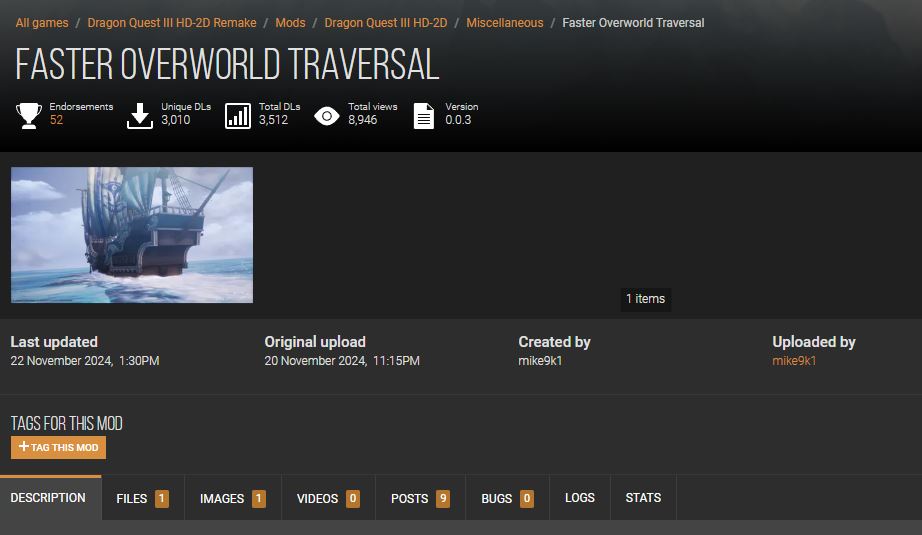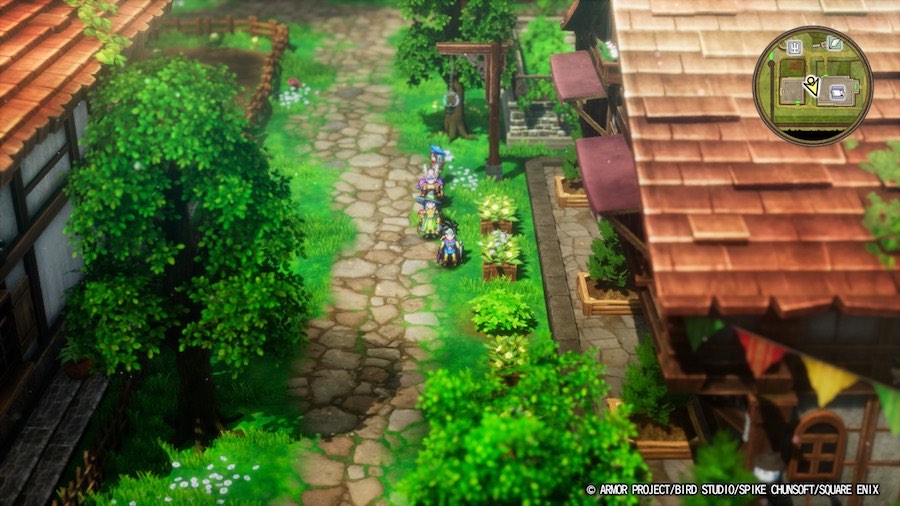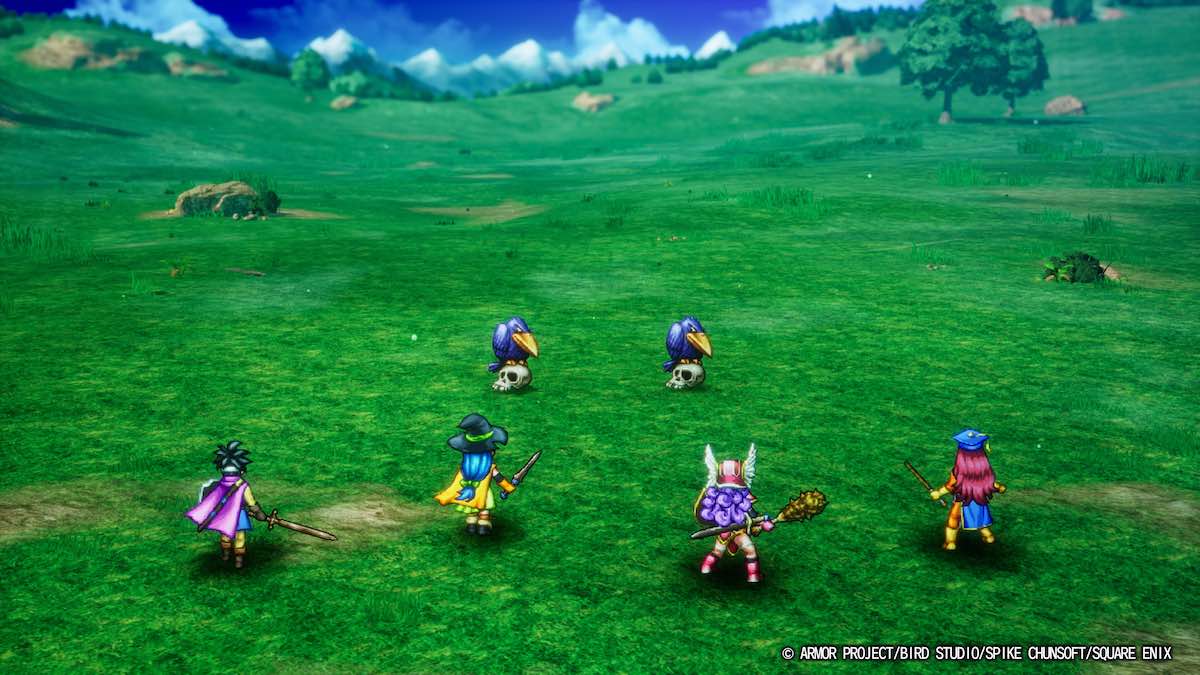Since the launch of Square Enix’s Dragon Quest III HD-2D Remake earlier this month, the modding community has been busy at work making various tweaks to the game, and there’s already an array of mods out there for the PC version. This includes mods that increase the speed of overworld travel, modify odds for random encounters, modify the battle UI, remove gender-based equipment limitations and more.
These kinds of quality-of-life mods that aim to “improve” playing experience quickly became known among Japanese players too, but they weren’t taken to so kindly. One user’s criticism of the mods coming out for Dragon Quest 3 started up a heated conversation on X (as can be seen from the volume of tweets on the topic that come up just by looking up “mod” in Japanese):
PC gamers are celebrating the fact that there are already a bunch of mods out for Dragon Quest 3 that make it more user-friendly and whatnot, but I don’t understand how you can just casually alter someone else’s work. It’s the same as looking at an illustration and going, “It sucked so I fixed it for you.”

The post has garnered varying degrees of agreement, with people chiming in with comments ranging from “Modding is an insult to the developers” to “What’s the problem if it’s offline?” But a reply highlighting the fundamental difference in how game mods are perceived in Japan vs in the West has since accumulated over 10 thousand likes:
This can only be described as a cultural difference. Mod culture is the extension of the right to customize and fix a game as a product you own (which is sometimes even encouraged by developers). But with Japanese games, there’s a strong sense of the director’s authority, and they’re viewed more like personal works of art, which makes modding frowned upon.

Offline, singleplayer games released by Western studios are very often mod-friendly, and sometimes even natively support modding or come with their own modding API, but Japanese developers generally do not acknowledge modding, and when they do, it’s not in a positive way. For example, a presentation released by Capcom’s R&D department last year highlights the following negative effects of mods:
- The image of the product is tarnished when mods are released that violate public order and morals without permission.
- Mods can be mistaken for legitimate implementations and can cause bad publicity.
- Customers affected by buggy mods cost support time. Worst cases include freezes and save data corruption.
- Investigations take time + are futile even if they turn out to be successful.
- Delays in the original production of the game due to the time required for research.
- Support for other users is delayed.
Japanese gamers opposed to mods view them as something that ignores the developer’s intentions – the artist’s intentions, and desecrates their work. In addition, with Japan’s gaming scene historically being more console-oriented than PC-oriented, there’s a lot more taboo attached to the idea of modifying software. From the developer’s point of view (and Capcom’s probably not the only one), modding is seen as risk to quality assurance and branding, while also potentially inflating customer support costs.





